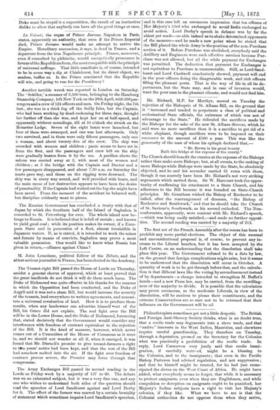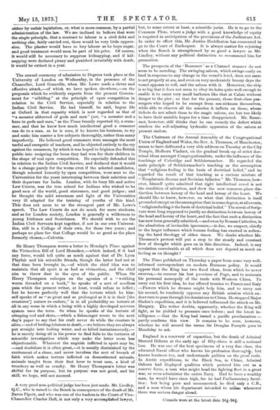Philanthropists sometimes get not a little despotic. The British and
Foreign Anti-Slavery Society thinks, what is no doubt true, that a coolie trade may degenerate into a slave trade, and that "native" interests in the West Indies, Mauritius, and elsewhere require careful guardianship. They therefore on Tuesday, through a deputation, pressed on the Secretary for the Colonies what was practically a prohibition of the coolie trade. In reply, Lord Carnarvon very justly said that coolie immi- gration, if carefully watched, might be a blessing to the Colonies, and to the immigrants ; that even in the Pacific Bishop Patterson had advised regulation, and not suppression ; and that he himself might be trusted, for he had just eman- cipated the slaves on the West Coast of Africa. He might have added, what everybody seems to forget, that while it is necessary to protect emigrants, even when they are Englishmen, and while compulsion or deception on emigrants ought to be punished, her Majesty's Indian subjects have a right to visit her Majesty's colonies, if they like. What we have to see is that the Colonial authorities do not oppress them when they arrive,
either by -unfair legislation, or, what is more common, by a partial administration of the law. We are inclined to believe that were the single principle, that a contract to labour is a civil debt and nothing else, fairly carried out, there would be very little oppres- sion. The planter would have to buy labour as he buys sugar, and good treatment would soon be part of his price. Of course, it would still be necessary to suppress kidnapping, and if kid- napping were declared piracy and punished invariably with death, it would be extinct in a year.



































 Previous page
Previous page